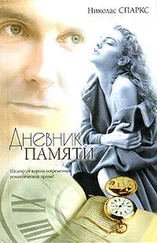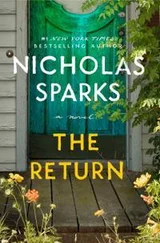But if anyone had asked, I would have said that my story was not worth the time it would take to listen to it. If nonetheless pressed for details, I would have told them that I’d enlisted in the U.S. Army Air Corps in June 1942, and after being sworn in, I boarded a train filled with other cadets bound for the Army Air Corps Reception Center in Santa Ana, California. It was my first trip out west. I spent the next month learning how to follow orders, clean bathrooms, and march properly. From there, I was sent to Primary Flight School at Mira Loma Flight Academy in Oxnard, where I learned the basics of meteorology, navigation, aerodynamics, and mechanics. During this time, I also worked with an instructor and was gradually taught to fly. I flew my first solo there, and within three months I had accumulated enough hours in the air to move to the next stage of training at Gardner Field in Taft. From there, it was off to Roswell, New Mexico, for even more flight training and then back to Santa Ana, where I finally began my formal training as a navigator. Yet even when I completed the training there, I still wasn’t done. I was sent to Mather Field near Sacramento, where I attended Advanced Navigation School, to learn how to navigate by the stars, with dead reckoning, through the use of visual references on the ground. Only then did I receive my commission.
It was another two months before I was sent to the European theater. First, the crew was sent to Texas, where we were assigned to the B-17, and then finally to England. By the time I flew my first combat mission in October 1943, I’d been training stateside for almost a year and a half, as far from action as someone in the military could possibly be.
This is not what people would have wanted to hear, but this was my experience of the war. It was training and transfers and even more training. It was about weekend passes and my first visit to a California beach, where I laid eyes on the Pacific for the very first time. It was having the chance to see the giant sequoias in northern California, trees so large they seemed beyond comprehension. It was about the feeling of awe that overcame me when soaring over the desert landscape as dawn was breaking. And it was also, of course, about Joe Torrey, the best friend I ever had.
We had little in common. He was a Catholic from Chicago, a baseball player with a gap-toothed smile. He had trouble stringing a single sentence together without cursing, but he laughed a lot and poked fun at himself, and everyone wanted him along when weekend passes were handed out. They wanted him to join their poker games and to cruise downtown with them, since women also seemed to find him irresistible. Why he often chose to spend time with me has always been a mystery, but it was because of Joe that I ever felt included at all. It was with Joe that I drank my first beer while sitting on the Santa Monica Pier, and it was with Joe that I smoked the first and only cigarette of my life. It was Joe that I spoke with on those days I particularly missed Ruth, and Joe would listen in a way that made me want to keep talking until I finally began to feel better. Joe, too, had a fiancée back home – a pretty girl named Marla – and he admitted that he didn’t particularly care what happened in the war as long as he was able to get back to her.
Joe and I ended up on the same B-17. The captain was Colonel Bud Ramsey, a genuine hero and a genius as a pilot. He’d already flown one round of combat missions and had been assigned a second. He was calm and collected under the most harrowing circumstances, and we knew we were lucky to have him as our commander.
My actual war experiences began on October 2, when we raided a submarine base in Emden. Two days later, we were part of a squadron of three hundred bombers converging on Frankfurt. On October 10, we bombed a railway junction at Münster, and on October 14, on a day that became known as Black Thursday, the war came to an end for me.
The target was a ball-bearing plant in Schweinfurt. It had been bombed once a few months earlier, but the Germans were making good headway in repairs. Because of the distance from base, our formation bombers had no fighter support, and this time the bombing run was anticipated. German fighters showed up at the coastline, dogging various squadrons all the way, and by the time we were within striking range, flak bursts had already formed a dense fog over the entire city. German rockets exploded all around us at high altitude, the shock waves shaking the plane. We had just dropped our payload when a number of enemy fighters suddenly closed in. They came from every direction, and all around us, bombers began to fall from the sky, enveloped in fire as they spiraled toward the earth. Within minutes, the formation was in tatters. Our gunner was struck in the forehead and fell back into the aircraft. On instinct, I climbed into his seat and began to fire, loosing close to five hundred rounds without doing any appreciable damage to the enemy. At that moment, I did not think that I would survive, but I was too terrified to stop firing.
We were strafed by enemy fire on one side and then the other. From my vantage point, I could see gigantic holes being ripped into the wing. When we lost an engine to enemy fire, the plane began to shimmy, the roar louder than anything I’d ever heard before as Bud struggled with the controls. The wing suddenly dipped, and the plane started to lose altitude, smoke billowing behind us. The fighters closed in for the kill, and more flak tore through the fuselage. We dropped a thousand feet, then two thousand. Five thousand. Eight thousand. Bud somehow managed to straighten the wings and, like a mythological creature, the nose of the plane somehow began to rise. Miraculously, the plane was still aloft, but we were separated from the formation, alone above enemy territory – and still the flak pursued us.
Bud had turned us toward home in a desperate bid to make our escape, when flak shattered the cockpit. Joe was struck, and instinctively, he turned toward me. I saw his eyes go wide in disbelief and his lips form my name. I lunged toward him, wanting to do something – anything – when suddenly I fell, my body losing all its strength. I couldn’t understand what had happened. At the time, I didn’t know I’d been hit, and I tried and failed again to get to my feet to help Joe when I felt a series of sharp, stinging burns. I looked down and saw large blooms of red spreading across the lower half of my body. The world seemed to telescope around me, and I passed out.
I don’t know how we made it back to base, other than to say that Bud Ramsey performed a miracle. Later, at the hospital, I was told that people took photographs of the plane after we landed, marveling that it had been able to stay airborne. But I didn’t look at the photographs, even when my strength had returned.
I was told that I should have died. By the time we’d reached England, I’d lost more than half my blood and I was as pale as a swan. My pulse rate was so low that they couldn’t find it in my wrist, but they nonetheless rushed me into surgery. I wasn’t expected to survive the night, or the night after that. A telegram was sent to my parents, explaining that I’d been wounded and that more information would be forthcoming. By “more information,” the army air corps meant another, later telegram informing them of my death.
But the second telegram was never sent, because somehow I did not die. This was not the conscious choice of a hero; I was not a hero and remained unconscious. Later, I wouldn’t remember a single dream or even whether I’d had any dreams at all. But somehow, on the fifth day after surgery, I woke, my body drenched in sweat. According to the nurses, I was delirious and screaming in agony. Peritonitis had set in and I was rushed into surgery once more. I do not remember this, either, or any of the days that followed. The fever lasted for thirteen days, and on each successive day, when asked about my prognosis, the doctor shook his head. Though I was unaware of it, I was visited by Bud Ramsey and surviving crew members before they were assigned to a new plane. Meanwhile, a telegram was sent to the home of Joe Torrey’s parents, announcing his death. The RAF bombed Kassel, and the war continued.
Читать дальше











![Николас Спаркс - Каждый вдох [litres]](/books/414723/nikolas-sparks-kazhdyj-vdoh-litres-thumb.webp)
